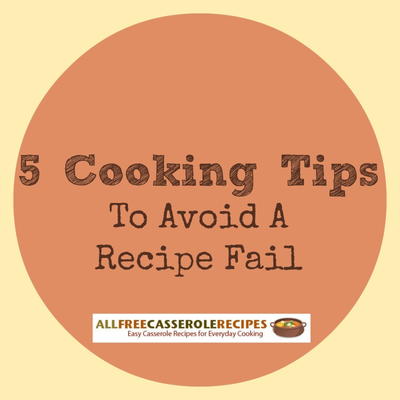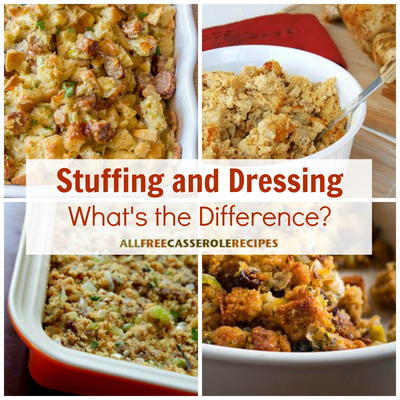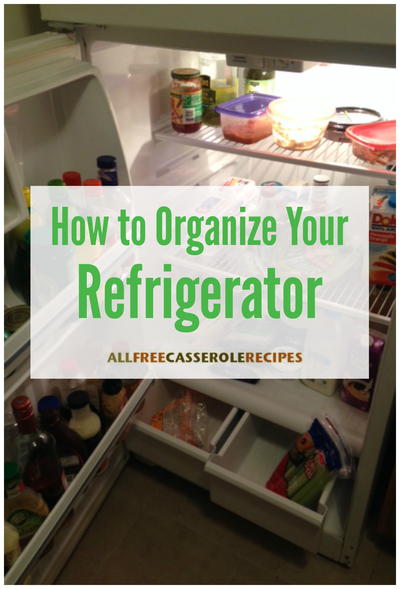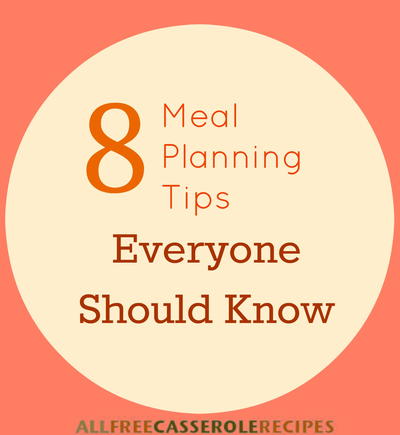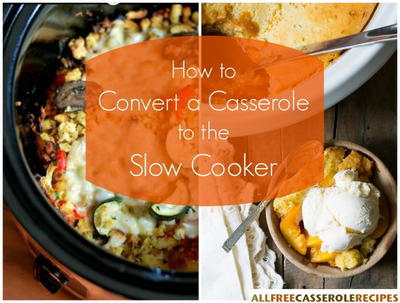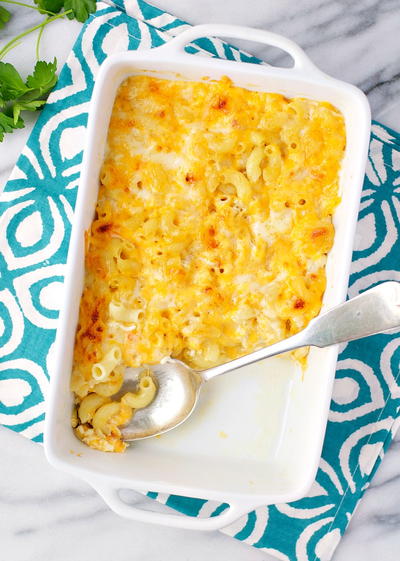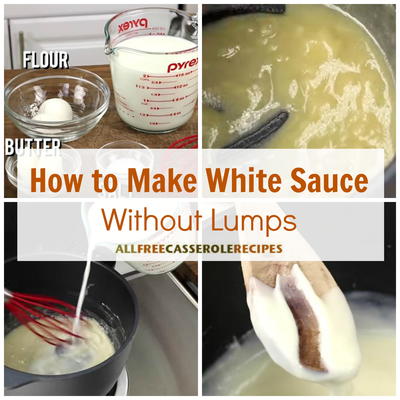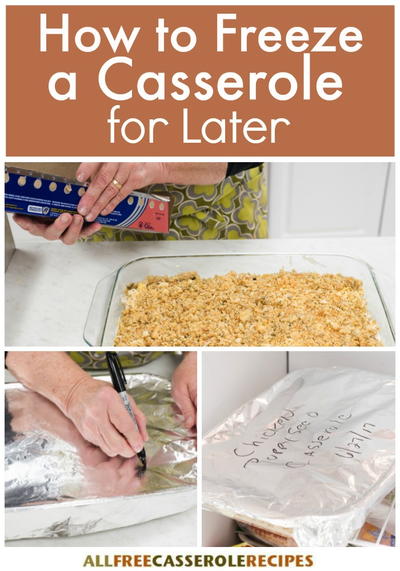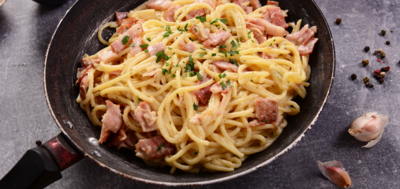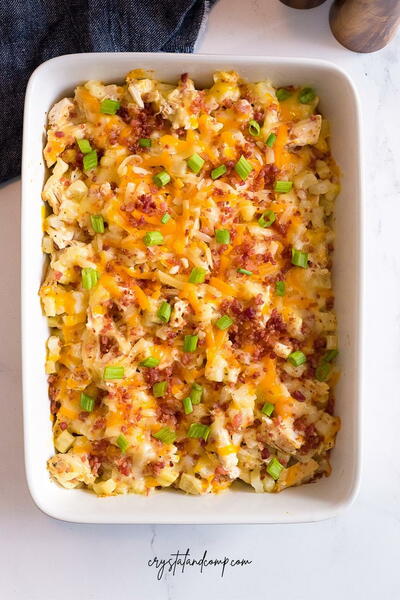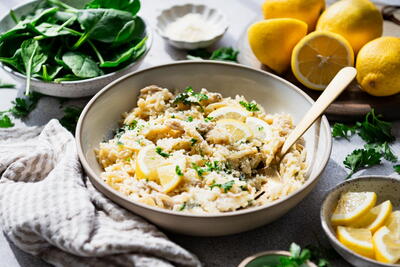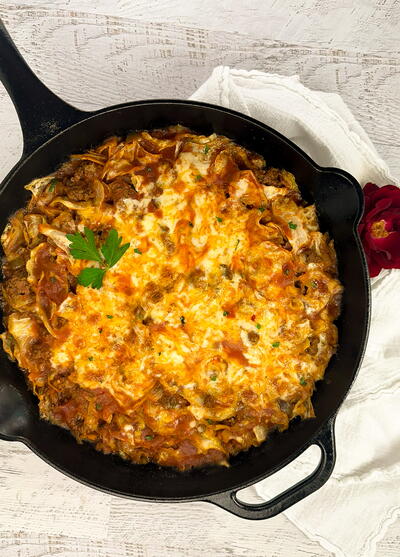5 Cooking Tips to Avoid a Recipe Fail
Avoid kitchen mishaps with the help of these cooking tips.
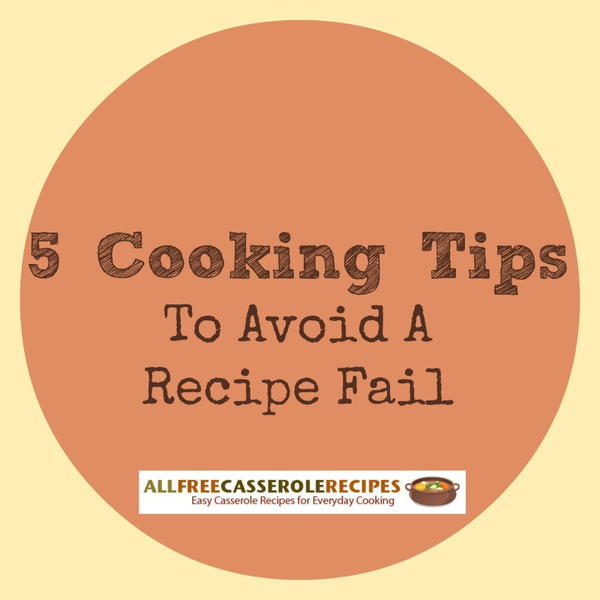
In a perfect world, every recipe would turn out just like the picture. However, the world of cooking is not perfect, which is why we've assembled this collection of 5 Cooking Tips to Avoid a Recipe Fail. Even after following the recipe, sometimes your casserole just doesn't turn out the way you'd hoped. Recipe fails can be discouraging, but these tips will help make every cooking experience a bit more enjoyable.
These cooking tips and tricks include suggestions about using substitutions, how to check your oven temperature, and several more cooking hacks to help you make the best casserole recipes ever! The most important thing to remember is that cooking, much like life itself, is a chance to learn something new. So, read through our list and gain some helpful tips on making the most of your time in the kitchen.
Happy casserole cooking!
5 Cooking Tips to Avoid Recipe Fails
-
Use an Oven Thermometer - When cooking anything in the oven, it is important to use the correct temperature. However, the actual oven temperature can sometimes be different than the temperature on the oven’s dial or display. Using an oven thermometer will help you “get to know” your oven better, so you can cook at more exact temperatures.
If your casseroles are consistently under or over-baked, even when closely following the recipe, your oven may be the culprit! -
Read Through the Entire Recipe Before You Start - This might seem obvious, but it’s easy to get caught up in the excitement of cooking! When making a casserole recipe, it’s always helpful to have a general idea of what the overall process of the recipe should look like. For example, think about when to boil those noodles or when to chop those onions so the entire process goes smoothly.
If a recipe takes longer to prepare than you were expecting, reading the recipe in its entirety before starting to cook will tell you what to expect. -
Be Careful with Substitutions - When attempting a recipe for the first time, use the ingredients listed. This allows you to “test” the recipe and see if it turns out the way you expected it would. After you’ve made the recipe once, feel free to experiment with substitutions.
If there are ingredients you'd like to change, keep that in mind for a possible substitutions next time. For example, maybe the casserole recipe calls for regular cream of chicken soup. After you make the dish according to the directions the first time, you could substitute reduced sodium cream of chicken soup the next time you make it. -
Trust Your Judgment – If you think a recipe direction sounds off or incorrect, do some quick research. Look for similar recipes and compare the instructions. If the instructions of similar recipes seem drastically different, consider using a different recipe if it's a dish you've never tried before.
If something seems incorrect, maybe it is! Chefs and foodies are human too, so sometimes mistakes happen. -
Practice Makes Perfect! – Rome wasn’t built in a day and cooking skills don’t suddenly appear overnight. Trial and error plays a big part in cooking. Be kind to yourself and realize that cooking is a learning process. You’ll also get to eat some delicious dishes along the way!
What have you learned from a failed recipe? Share your cooking tip in the comments!
Your Recently Viewed Recipes
FrasierFan1901
Apr 03, 2017
I love these tips, especially the second tip. It's easy to get excited about trying a new recipe and forget to read through it first before starting. I would just add one other point to this excellent list Maybe don't try a new recipe to serve at a party or other get-together, especially if it's a bit out of your current cooking skills. If it's possible, do a trial run first!
sBrookeLorren
Dec 23, 2016
I learned that sometimes you need to try again, and other times it's the recipe.
janb29
Dec 22, 2016
The very first time I made pumpkin pie using a fresh pumpkin I tried to mash it like potatoes. All of the solid pulp rose to the top of the pie. I learned to use the "boat motor" blender to puree the pumpkin. It has been much better since then.
buddygarrett53 748 3433
Dec 22, 2016
I learned to pay attention to the recipe. Never try to cook too fast.
versatileer 480255 3
Dec 22, 2016
I have learned from failed recipes that you get up and try again. Never give up, because you not only learn from a mistake, you can save face and do it up better than intentions can be.
gabbyj
Dec 22, 2016
I learned from a failed recipe of cherry flavored Christmas cookies, that if the recipe calls for chilling the dough, the dough does indeed need chilling. I didn't follow this recipe advice (stated more generally above as needing to read the recipe all the way through), and the cookies ended up spread out all over the cookie pan!
jenniferherman75 4 367374
Dec 22, 2016
I made a cheesecake and didn't notice I grabbed the one with the chives, so I learned - check your ingredients.
avosslm 9151175
Dec 22, 2016
I always make cream puffs for Christmas eve and the pastry use to fall and I learned from my Mom to poke a hole in the puff 10 minutes before they are done so it's good to talk with other cooks for tips.
tatertot3741 99038 63
Dec 22, 2016
I have learned to not forget baking powder in the cookies! )
brittles526 738774 4
Dec 22, 2016
I have learned that using too much canned pumpkin in my bundt cake results in a wet blob in the middle of the cake.
plawrence47 782940 5
Dec 22, 2016
I learned that there is a difference between baking powder and baking soda!
Member 7291726
Dec 21, 2016
I've learned that salt can be a very valuable tool when cooking pasta
susansmoaks 244482 8
Dec 21, 2016
a failed pancake recipe taught me how long to cook the pancakes
sennakory 9278747
Dec 21, 2016
I've learned to never leave things in the oven without a timer on!
Mary Cloud
Dec 21, 2016
I learned Greek food isn't that easy to cook - even when you follow the recipe
lamecow 0322806
Dec 20, 2016
When doubling a recipe, don't double the salt until you taste it!
AeriaDAeterna
Dec 20, 2016
Truly awesome advice, and they are so simple. Thanks for the information. Will definitely use these tips from now on.
lizkuc1 6004013
Dec 20, 2016
I have learned to carefully follow the recipe and double check all measurements.
loritrickey 509683 5
Dec 19, 2016
I always get my ingredients out before I start. I also read the measurements and get the cups and spoons ready and just the ones I need, spills mean no extra items to wash.
elysesw 7020665
Dec 19, 2016
I learned that every now and then a failed recipe can be doctored up and become a culinary masterpiece.
bettyjeanhorne26 3 967659
Dec 19, 2016
Always use a thermometer to check the temperature of meat don't just assume it's done you want to be safe with cooking meat ,you don't want to make you ,or your self sick that would be awe full . God bless Merry Christmas
debrowley1 4303421
Dec 19, 2016
Always read through the instructions more than once and get out all ingredients ahead of time.
discriminatingdiva 4568375
Dec 19, 2016
Don't just assume you have all the ingredients- check before starting or there will be oopsie's. Especially if you live with others who don't bother to tell you they used the last of something.
kmatthews1 5588396
Dec 19, 2016
I've learned that I need to read the whole recipe thru at least once before actually starting it...it always seems that there is a step that needs to be going quicker that you are ready do it if you don't prepare by reading ahead.
nataliegrace
Dec 16, 2016
I once had a cooking mishap while attempting to cook a sweet potato in the microwave. Never leave a potato unattended while it's cooking in the microwave and always make sure to wrap it in a very damp paper towel!
ridiculosity 67303 43
Dec 05, 2016
Chop fresh fruits at least as small as an average blueberry before you put them in muffins or they will be wet and heavy. I learned that with rhubarb.
tillathemom 283605 0
Dec 05, 2016
Always remember to turn off the oven to proof your bread unless you need bricks
Report Inappropriate Comment
Are you sure you would like to report this comment? It will be flagged for our moderators to take action.
Thank you for taking the time to improve the content on our site.

